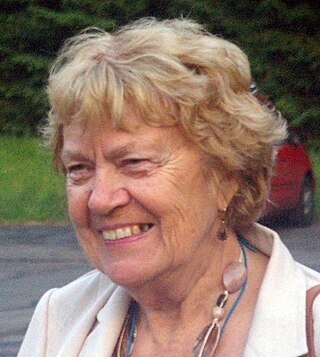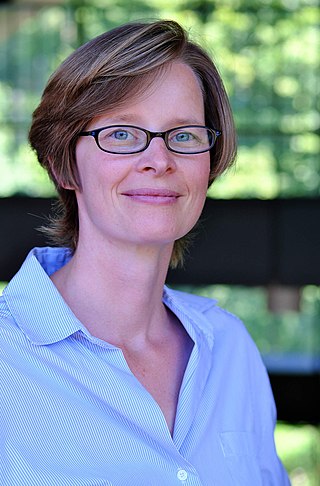Jerry R. Hobbs is an American researcher in the fields of computational linguistics, discourse analysis, and artificial intelligence.
Martin Kay was a computer scientist, known especially for his work in computational linguistics.
Computational semantics is the study of how to automate the process of constructing and reasoning with meaning representations of natural language expressions. It consequently plays an important role in natural-language processing and computational linguistics.
Eugene Charniak was a professor of computer Science and cognitive Science at Brown University. He held an A.B. in Physics from the University of Chicago and a Ph.D. from M.I.T. in Computer Science. His research was in the area of language understanding or technologies which relate to it, such as knowledge representation, reasoning under uncertainty, and learning. Since the early 1990s he was interested in statistical techniques for language understanding. His research in this area included work in the subareas of part-of-speech tagging, probabilistic context-free grammar induction, and, more recently, syntactic disambiguation through word statistics, efficient syntactic parsing, and lexical resource acquisition through statistical means.
Johanna Doris Moore is a computational linguist and cognitive scientist. Her research publications include contributions to natural language generation, spoken dialogue systems, computational models of discourse, intelligent tutoring and training systems, human-computer interaction, user modeling, and knowledge representation.

Eva Hajičová [ˈɛva ˈɦajɪt͡ʃovaː] is a Czech linguist, specializing in topic–focus articulation and corpus linguistics. In 2006, she was awarded the Association for Computational Linguistics (ACL) Lifetime Achievement Award. She was named a fellow of the ACL in 2011.

Yorick Alexander Wilks FBCS was a British computer scientist. He was an emeritus professor of artificial intelligence at the University of Sheffield, visiting professor of artificial intelligence at Gresham College, senior research fellow at the Oxford Internet Institute, senior scientist at the Florida Institute for Human and Machine Cognition, and a member of the Epiphany Philosophers.

Karen Ida Boalth Spärck Jones was a self-taught programmer and a pioneering British computer scientist responsible for the concept of inverse document frequency (IDF), a technology that underlies most modern search engines. She was an advocate for women in computer science, her slogan being, "Computing is too important to be left to men." In 2019, The New York Times published her belated obituary in its series Overlooked, calling her "a pioneer of computer science for work combining statistics and linguistics, and an advocate for women in the field." From 2008, to recognize her achievements in the fields of information retrieval (IR) and natural language processing (NLP), the Karen Spärck Jones Award is awarded to a new recipient with outstanding research in one or both of her fields.
Dragomir R. Radev was an American computer scientist who was a professor at Yale University, working on natural language processing and information retrieval. He also served as a University of Michigan computer science professor and Columbia University computer science adjunct professor, as well as a Member of the Advisory Board of Lawyaw.
Diane Litman is an American professor of computer science at the University of Pittsburgh. She also jointly holds the positions of senior scientist with the Learning Research and Development Center and faculty with the Intelligent Systems department. Litman is noted for her work in the areas of artificial intelligence, computational linguistics, knowledge representation and reasoning, natural language processing, and user modeling.

Barbara J. Grosz CorrFRSE is an American computer scientist and Higgins Professor of Natural Sciences at Harvard University. She has made seminal contributions to the fields of natural language processing and multi-agent systems. With Alison Simmons, she is co-founder of the Embedded EthiCS programme at Harvard, which embeds ethics lessons into computer science courses.
Julia Hirschberg is an American computer scientist noted for her research on computational linguistics and natural language processing.
Mari Ostendorf is a professor of electrical engineering in the area of speech and language technology and the vice provost for research at the University of Washington.
Ruslan Mitkov is a professor at Lancaster University, and a researcher in Natural Language Processing and Computational Linguistics. He completed his PhD at Technical University of Dresden under the supervision of Nikolaus Joachim Lehmann. He has published more than 240 refereed papers and is best known for his contributions to Anaphora Resolution, and his seminal work in computer-aided generation of multiple-choice tests among others.
Martha (Stone) Palmer is an American computer scientist. She is best known for her work on verb semantics, and for the creation of ontological resources such as PropBank and VerbNet.
Bonnie Jean Dorr is an American computer scientist specializing in natural language processing, machine translation, automatic summarization, social computing, and explainable artificial intelligence. She is a professor and director of the Natural Language Processing Research Laboratory in the Department of Computer & Information Science & Engineering at the University of Florida. Gainesville, Florida She is professor emerita of computer science and linguistics and former dean at the University of Maryland, College Park, former associate director at the Florida Institute for Human and Machine Cognition,, and former president of the Association for Computational Linguistics.
Ellen Riloff is an American computer scientist currently serving as a professor at the School of Computing at the University of Utah. Her research focuses on natural language processing and computational linguistics, specifically information extraction, sentiment analysis, semantic class induction, and bootstrapping methods that learn from unannotated texts.
Candace Lee (Candy) Sidner is an American computer scientist whose research has applied artificial intelligence and natural language processing to problems in personal information management, intelligent user interfaces, and human–robot interaction. She is a research professor of computer science at the Worcester Polytechnic Institute, and a former president of the Association for Computational Linguistics.

Vera Demberg is a German computational linguist and professor of computer science and computational linguistics at Saarland University.
Yang Liu is a Chinese and American computer scientist specializing in speech processing and natural language processing, and a senior principal scientist for Amazon.




